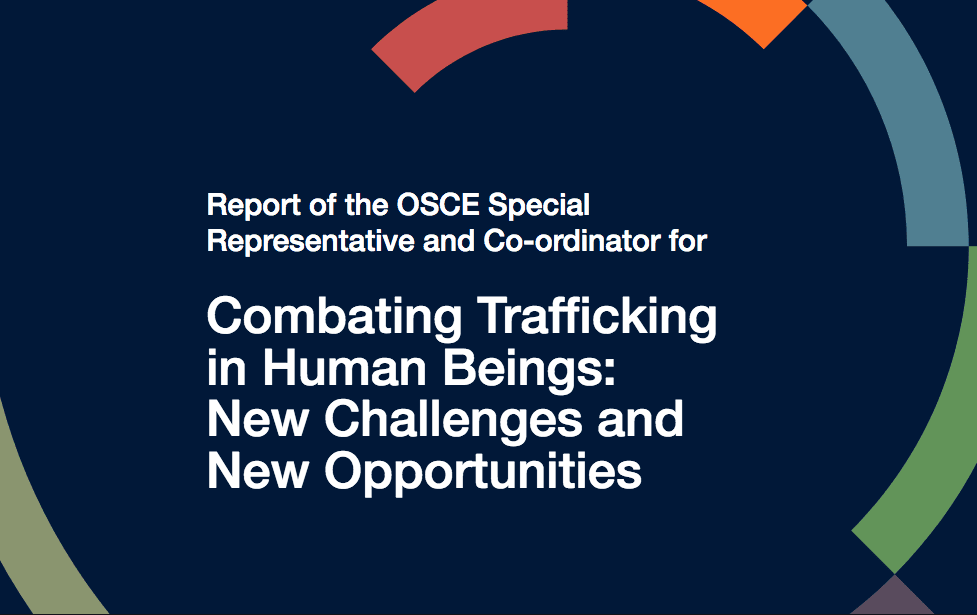
Combating Trafficking in Human Beings: New Challenges and New Opportunities
Introduction by Valiant Richey, OSCE Special Representative and Co-ordinator for Combating Trafficking in Human Beings
The period of 2018-2019 witnessed numerous advances, transitions and successes in the OSCE’s efforts to combat trafficking in human beings. First of all, allow me to express my gratitude for the leadership of Ambassador Madina Jarbussynova, my predecessor as Special Representative and Co-ordinator. Her tenure paved the way for many of the innovative portfolios we are still advancing today.
Since joining the Office in June 2018, it has been my great privilege to oversee a highly and diversely-skilled team. Re-viewing the range of programmes we have implemented, what stands out is the sheer scope of engagement across various topics and regions. We have successfully held two Alliance Conferences, conducted five simulation-based trainings in Russian, English and Italian, carried out seven country and follow-up visits, as well as issued numerous policy-oriented publications and delivered multiple work-shops on implementation. We have also proposed system-atic responses to child trafficking, pioneered new efforts in ethical public procurement, raised the profile of challenges related to technology, and produced concrete guidance for addressing trafficking in migration flows. The broad scope of our efforts reflects not only the hard work of our team, but also shows that our services are in high demand.
The Office of the Special Representative and Co-ordinator for Combating Trafficking in Human Beings (OSR/CTHB) confronts human trafficking concretely and comprehen-sively, paying particular attention to its cross-dimensional nature and the OSCE’s focus on the intersection of secu-rity and human rights. Trafficking in human beings is not only a human rights violation but also a grave security concern. It generates cross-border and internal instability when the rule of law and human security are undermined through the exploitation of vulnerable people. Security and human rights in the OSCE region are threatened as long as the scourge of human trafficking persists.
This Biennial Report aims to foster an increased aware-ness and understanding of human trafficking itself, as well as of some of the challenges and opportunities currently facing the anti-trafficking community. Following an out-come-focused approach, it delineates why and how we do our work, and demonstrates that in the past two years, we have carefully targeted our actions to maximize resources and impact on the ground. My Office has endorsed and promoted a policy-to-practice methodology wherein we respond to a human trafficking issue by researching the nature of the challenge, recommending effective policy responses, and then supporting implementation of that policy into practice on the ground. We also engage with practitioners in the field, re-incorporating their experiences and needs into future policy development, so that practice also informs policy.
None of the achievements presented in this report would have been possible without our partners – the OSCE field operations and executive structures – and we are proud to showcase their contributions here as well. I would also like to highlight the fruitful co-operation between my Office and the Italian and Slovakian Chairmanships, in 2018 and 2019 respectively, for which we are immensely grateful.
Within everything we have set out to accomplish over the past two years, the interests of victims have stood at the forefront. The ultimate goal is to end human trafficking and I confidently believe that the OSR/CTHB can profoundly contribute to this goal and serve as one of the world’s fore-most anti-trafficking forces. We invite you to join us in this endeavor in 2020 and beyond.
Read the full report here.
